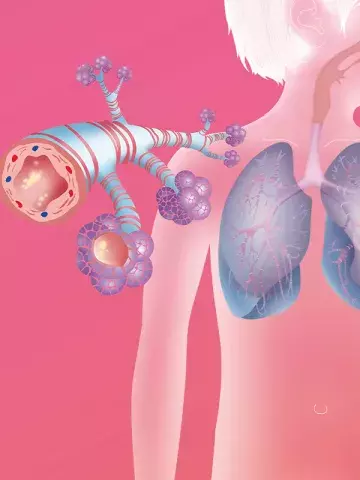Benefits of oral corticosteroids for acute preschool wheeze examined
By Rebecca Jenkins
Oral corticosteroids improve short-term outcomes in acute preschool asthma, particularly for children presenting with moderate-to-severe acute wheeze, a meta-analysis finds.
Short courses of oral corticosteroids were widely used as a treatment for acute wheeze in children aged 12 to 71 months, researchers wrote in The Lancet Respiratory Medicine, but there was variable evidence around their benefit and concerns about side effects.
Following a literature review of trials analysing oral corticosteroids in acute preschool wheeze, the researchers obtained individual data from seven trials comprising 2172 children, with 1728 children in the eligible individual participant data (IPD) age range (12 to 71 months).
Of this cohort, 853 (49.4%) received oral corticosteroids (544 [63.8%] male and 309 [36.2%] female) and 875 (50.6%) received placebo (583 [66.6%] male and 292 [33.4%] female), with all studies using prednisolone as an intervention.
Compared with placebo, oral corticosteroids reduced wheezing severity scores at 4 hours (mean difference -0.31) but not at 12 hours, the IPD meta-analysis found.
In other benefits, length of hospital stay was significantly reduced in the children who received oral corticosteroids compared with placebo (-3.18 hours).
‘The effect of corticosteroids on these outcomes was greater in children presenting with moderate-to-severe wheeze, than in those presenting with mild wheeze,’ the researchers noted.
Administration of oral corticosteroids in the emergency department compared with inpatient administration was also associated with improved length of hospital stay.
However, subgroup analysis showed the greatest reduction in hospital stay (-4.45 hours) was in those with a history of wheezing or asthma who received oral corticosteroids, the researchers added.
The analysis found there was a higher risk of vomiting with oral corticosteroids, but no other adverse effects were identified.
‘Oral corticosteroids seem to have no benefit for long-term outcomes, including the need for additional asthma medication or health-care service revisits,’ the authors added.
Dr Shivanthan Shanthikumar, Paediatric Respiratory Specialist and Clinician-Scientist Fellow at the Murdoch Children’s Research Institute, Melbourne, said the robust study was in line with Australian guidance, including recommendations in the Royal Children’s Hospital’s preschool asthma clinical practice guideline.
This guideline stated prednisolone should not be prescribed for preschool asthma outside of the emergency department or hospital setting unless an exacerbation was being managed in a general practice and a transfer to emergency was being arranged.
However, Dr Shanthikumar said despite the guidance there were concerns oral corticosteroids were being overused for preschool asthma in Australia across a range of settings.
Recurrent oral corticosteroid should not be used as a temporary measure in place of optimal asthma management, Dr Shanthikumar said, noting recurrent use was associated with long-term impacts on adrenal suppression and bone health.
‘We need a mindset change to view preschool asthma as a chronic condition that needs management, not just as a series of acute events,’ he said.
‘GPs are critically important in the management of preschool wheeze, including making the diagnosis, prescribing preventers and following up after acute exacerbations.’
Lancet Respir Med 2024; https://doi.org/10.1016/S2213-2600(24)00041-9.


